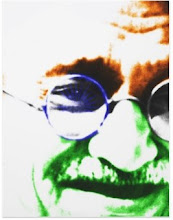Topics
Archive for December 2011
Kolkata hospital fire: An RTI query which may have averted AMRI blaze
Saturday, 24 December 2011
by RTI INDIA
Categories:
AMRI,
government,
importance of rti act,
rti act,
RTI query
|
Leave a comment
Want revaluation? File an application under the RTI Act
Friday, 23 December 2011
by RTI INDIA
Categories:
access answer sheets,
implementation of RTI Act.,
importance of rti act,
issue in rti act,
revaluation,
RTI India,
students,
Try the RTI route,
use of rti act
|
Leave a comment
Is CIC empowered to prosecute for perjury? Court issues notice
by RTI INDIA
Categories:
cic,
DoPT,
High Court,
issue in rti act,
RTI India
|
Leave a comment
Limit RTI applications to 250 words: DoPT
According to proposed amendments in the RTI rules, the DOPT, nodal body for implementing the Act in the country, has said each application will be limited to 250 words excluding the address of the public authority and applicant. It will also be limited to only one subject matter.
The rules will be a modification of the present RTI (regulation of fee and cost) rules, 2005 and the Central Information Commission (appeal procedure) rules, 2005.
The DoPT has sought the comments on these changes from public on email id "usrti-dovt@nic.in" by December 27, 2010.
The rules have resulted in furore among RTI activists who say that they will be of no good to semi-literate and illiterate people who are the main users of the law.
He said people from rural areas who do not have Internet access will be devoid of sending their views on the subject.
"Putting a word limit of 250 words will obstruct the Right to Information. There was very minute number of people who misused the provisions of RTI applications by asking large number of questions but there are enough powers to reject such applications. There was no need for such limits on word usage," said Subhash Agrawal, another RTI activist.
"The new rules widen the ambit of discretionary use by the concerned Public Information Officer who can reject the applications summarily," Venkatesh Nayak of Commonwealth Human Rights Initiative said.
He asked how can the government set a limit of words, especially when same set of questions in different languages will require different word usage.
He also said legally the process of RTI starts when application is submitted to a PIO. "The State cannot dictate the user to set word limit before process starts. Instead the CPIO should be empowered to ask the appellant to prioritise the information, in case of voluminous information," he said.
Thursday, 22 December 2011
by RTI INDIA
Categories:
DoPT,
PIOs,
RTI applications,
RTI India
|
Leave a comment
Bapu’s labour union cheats jobless mill workers of crores
Mahatma Gandhi started Majoor Mahajan Sangh in 1920 to fight for the rights of textile mill workers and even undertook a fast to convince mill owners to give the workers higher pay.
Today, the sangh is being accused of subverting Gandhian values. Police in Ahmedabad has accused leaders of the labour union of siphoning off crores of rupees meant to be compensation for jobless workers of 29 closed textile mills. The FIR, filed on Saturday, has named Raman Patel, president of the sangh, its secretary Manhar Shukla, chartered accountants Amal Datt & Associates, private lender Mohanlal Shah, Bapunagar Mahila Co-operative Bank and the HC appointed official liquidator as accused.
According to the FIR, savings accounts were opened in both cooperative and nationalized banks in the name of people who had never worked in a textile mill and the money withdrawn.
The scam came to light when Mansukh Parmar, who retired from Calico Mills in 1988, filed a complaint of fraud and embezzlement with the Navrangpura police. He told the police that when textile mills closed down in 1999, the Central government had come out with a scheme of giving the workers 18 months salary as compensation.
The sangh was asked to identify beneficiaries of the scheme and Parmar was on one of the committees identifying workers. Parmar alleges Calico Mills had 4,949 workers who were entitled for compensation. However, the sangh prepared a list of 5,757 names, 808 workers more than the actual number. He alleged that he was thrown out of the committee because he objected to this anomaly.
The sangh passed on the inflated list to the liquidator who issued cheques without verifying the names. Parmar had said in his complaint that instead of handing over cheques individually to beneficiaries, the liquidator gave all the cheques to the sangh officials.
The sangh officials have been accused of selling the cheques to a private lender at a discount. Police officials have found that at least 284 cheques have been issued in the names of people who had never worked in a textile mill. Yet, savings accounts were opened in their names in the Bapunagar bank and Rs 1.63 crore was withdrawn.
Sunday, 11 December 2011
by RTI INDIA
Categories:
impact of rti act,
RTI India,
use of rti act
|
Leave a comment
'Charge RTI fee as fixed in Act'
Friday, 9 December 2011
by RTI INDIA
Categories:
DoPT,
fee,
issue in rti act,
sections 27 and 28 of the Right to Information Act
|
Leave a comment


